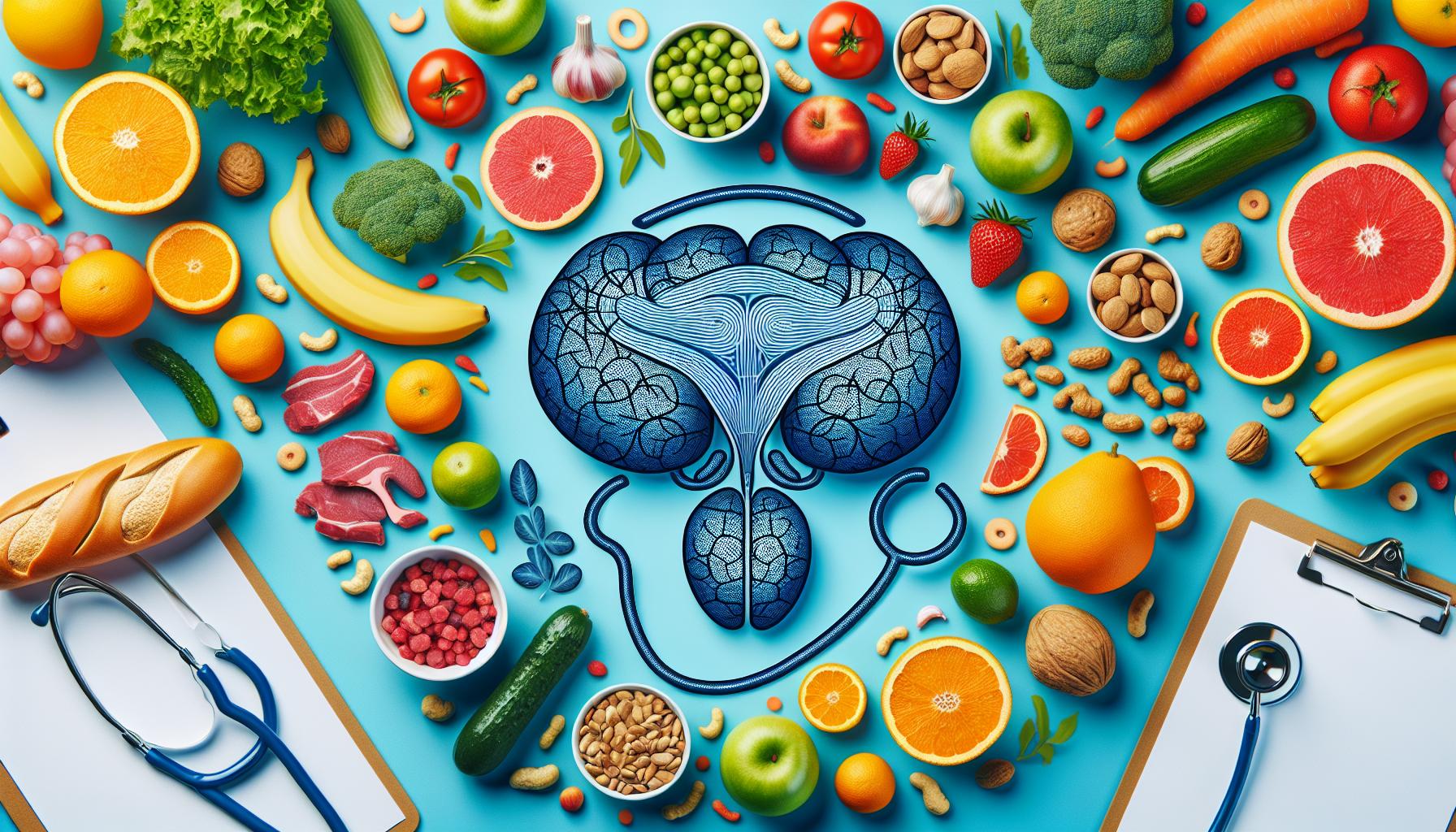Introduction to a Strong Comeback: Your Diet After Prostate Cancer Surgery
Are you wondering how to maximize your healing after prostate cancer surgery? Here’s your answer condensed in a nutshell: a balanced, nutrient-rich, high-protein diet can significantly promote your recovery. But that’s just scratching the surface. There’s more to it than just hitting the right macronutrients. Dig a little deeper, and you’ll discover that your dietary regimen can go a long way in aiding your recovery, boosting your immune system, and increasing your overall strength. Furthermore, it is not just about what you eat, but also when and how you eat. So, buckle up and prepare to embark on this extensive guide to improving your diet post-prostate cancer surgery.
The Melody of Macronutrients: Proteins, Carbohydrates and Fats
After surgery, your body requires additional protein to repair tissues, ward off infections, and assist in quick recovery. Lean meats, poultry, fish, eggs, and legumes are rich sources of protein and can be incorporated into your daily meals.
Similarly, carbohydrates serve as your main fuel source, providing essential energy for the healing process. Opt for complex carbohydrates like whole grains, legumes, and vegetables, as they are digested slowly and provide steady energy.
While often misunderstood, fats are essential too. Healthy fats found in olive oil, avocados, nuts, and seeds can boost your energy and aid in absorbing vital vitamins.
The Colorful Symphony of Vitamins and Minerals
Next to the macronutrients, vitamins and minerals play a crucial role in healing and recovery. Vitamin C found in citrus fruits aids in wound healing, and zinc, found in lean meats, aids in cell reproduction and immune function.
Hydrate to Regenerate: The Importance of Water
Staying hydrated is a simple yet effective way of promoting healing. Water helps in transporting nutrients to cells, removing waste products, and preventing constipation, a common side effect of some medications.
Fiber-Rich Food: An Unsung Hero
Fiber-rich foods help in managing weight, lowering cholesterol, and improving bowel movements, especially when you are dealing with constipation after surgery. Whole grains, fruits, vegetables, and legumes are all high in fiber, aiding digestion and bowel health.
Dining Dynamics: Eating Habits to Cherish
How you eat is as important as what you eat. Eating smaller, frequent meals rather than two or three large ones can help in maintaining energy levels, reducing gastrointestinal problems, and managing post-surgery weight.
The No-Nos: Foods to Avoid
While it is important to get the right nutrition, it’s equally important to steer clear of processed and high-sugar foods. They not only hinder recovery but can also lead to weight gain and other problems.
Making it Count: Calorie Quality vs Quantity
Remember, not all calories are created equal. Aim for nutrient-dense foods over empty-calorie options. It’s not just about ‘eating’ but eating right.
Conclusion: Take the Healing Reins with Nutrition
Post-prostate cancer surgery recovery is much more facilitated when you take charge of your nutrition. Incorporating a balanced diet that is rich in proteins, carbs, healthy fats, vitamins, minerals, and water can significantly improve healing and recovery. Avoiding processed and high-sugar foods, meanwhile, helps maintain a healthier body in the long run.
Frequently Asked Questions
1. How long does it take to recover from prostate cancer surgery?
The recovery timeframe can vary depending on a range of factors such as age, the general health of the patient, and the specifics of the surgery.
2. Can diet influence prostate cancer prognosis?
While the direct influence of diet on prostate cancer prognosis is not definitive, a healthy diet can definitely boost overall health, immunity, and the body’s ability to recover post-surgery.
3. What should I avoid eating after prostate cancer surgery?
It is typically best to avoid processed foods, high-sugar foods, saturated and trans fats as they can negatively impact your recovery process.
4. How can I prevent weight gain after prostate cancer surgery?
To prevent weight gain, focus on a balanced diet, portion control, and include regular mild to moderate exercise (as per your doctor’s advice) in your routine.
5. Can prostate cancer come back after surgery?
In some cases, prostate cancer might return even after surgery. Regular check-ups can help in early detection if the cancer comes back. A healthy lifestyle including a balanced diet, regular exercise and stress management are crucial to manage the risk factor.


